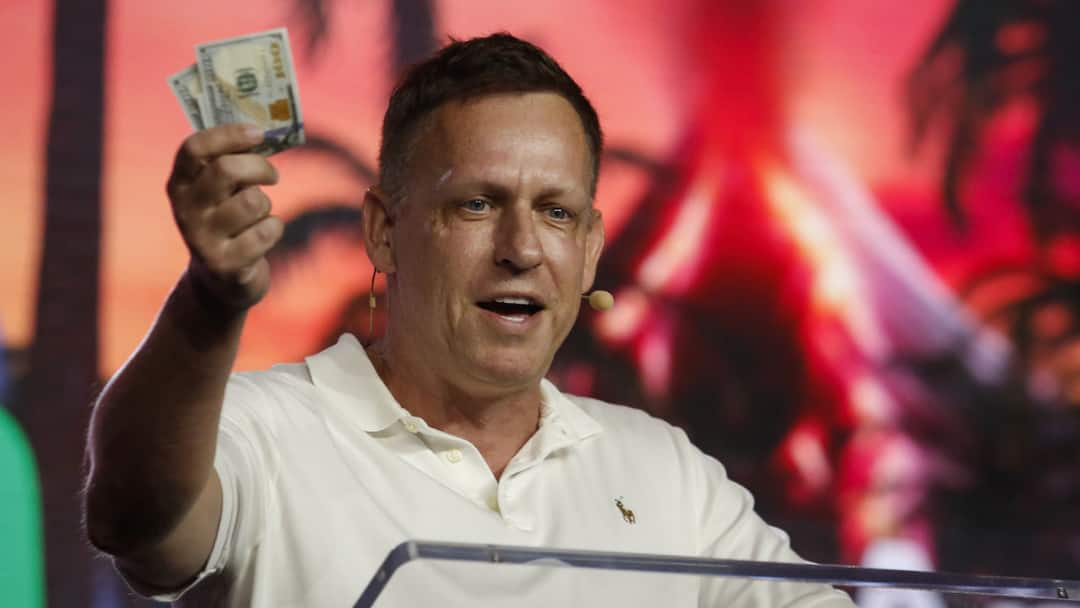Billionaire investor Peter Thiel’s hedge fund, Thiel Macro, has exited its entire $100 million position in artificial intelligence chipmaker Nvidia during the third quarter, fuelling renewed anxiety over a potential AI bubble burst, Reuters reported.
Thiel Macro Sells Entire Nvidia Stake
A regulatory filing submitted to the US Securities and Exchange Commission (US SEC) on 14 November showed that Thiel Macro disposed of 537,742 Nvidia shares, its full holding in the company, valued at roughly $100 million as of the 30 September closing price.
According to the filing, Thiel Macro’s major holdings now include Apple, Microsoft and Elon Musk-led Tesla.
Market Jitters Over AI Valuations
The fund’s complete Nvidia exit has intensified fears on Wall Street that AI-driven equities may be nearing a correction, the report said. Investor nerves have already been frayed by concerns that technology valuations have climbed too quickly.
Markets worry that the enormous capital pumped into AI, spanning cutting-edge chips and multi-billion-dollar data centres, could be at risk if demand cools.
Analysts will closely scrutinise Nvidia’s third-quarter results on 19 November for signs of sustained appetite for its advanced AI chips, widely regarded as a bellwether for the broader sector, it added.
The report also noted that, unlike the more upbeat sentiment in the previous quarter, several hedge funds trimmed their exposure to members of the ‘Magnificent Seven’ tech cohort during Q3.
SoftBank Also Cuts Nvidia Exposure
Just days earlier, on 11 November, SoftBank Group Corp announced it had sold its stake in Jensen Huang’s company, realising $5.83 billion, while continuing to invest in Sam Altman-led OpenAI.
In February 2025, SoftBank’s Masayoshi Son, Altman and Oracle’s Larry Ellison joined US President Donald Trump to unveil a $500 billion AI initiative known as Stargate.
“I can’t say if we’re in an AI bubble or not,” SoftBank Chief Financial Officer Yoshimitsu Goto said during its earnings briefing. The company sold its Nvidia stake “so that the capital can be utilised for our financing,” he added, without further explanation, as reported by Bloomberg.


